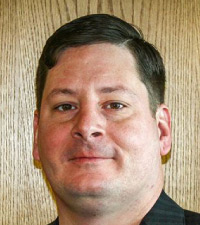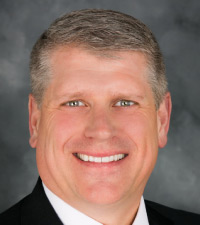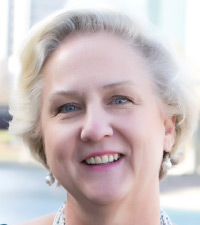Starting A Business in Omaha, NE – 2019
Starting a business has its fair share of risks and rewards. For some, the risks are great and the rewards don’t seem to balance the scale. This is frustrating for some, but a true entrepreneur knows that overcoming the risks in order to start a business of their own is a reward in itself.
Jethro Hopkins, the managing partner at No Coast Business Advisors, believes that starting a business is one of the most challenging and potentially rewarding things anyone can do in their life. According to Jethro, the starting point for any entrepreneur looking to start their own business is to have a good dose of common sense. Do you have any experience in the industry? Have you done some work there? These are the types of questions Jethro asks his clients when they come to him with a business idea. “If you’ve never worked in retail, don’t start a retail business. If you’ve never worked on cars, don’t start a car mechanic business,” Jethro stated. “It seems like common sense, but I’ve seen so many people mess this up.”
No Coast Business Advisors specializes in educating new businesses. “There is a lot of information that people don’t know…and don’t even know that they need to know this information.” Jethro revealed. “Information about taxes, corporations, different legal entities…we can educate you on these topics. Depending on budgets, we can also provide things like lead generation, advertising, and exit planning.”
Jethro went on to say that you should always go into a business with an end in mind. “If you’re in your late 20s, you shouldn’t go into the business thinking, ‘This is going to be what I will do for the next 40 years.’ You should have an end point in mind,” Jethro advised.
Jethro admitted that he has seen new businesses make a few common mistakes, including not having enough liquidity and not being prepared for the time commitment. “Being a business owner is the only profession in which you have to work 80 hours in order to not have to work 40 hours for someone else. It’s going to become the most important part of your life. Make sure your family is on board. If you are going to get into the market, you are going to have to understand both the business and local market in general. People will not just come to you just because you opened your doors. If you can’t get out there and sell it constantly, it’s not going to work. If you can’t sell, you’re going to fail.”
While the prospect of starting a business may seem daunting, Jethro expressed his confidence that it can be one of the most rewarding personal experiences imaginable. “Once you get up and running, you will have the freedom to choose what you do. You will be able to do what you want, when you want to do it, and how you want to do it. Being a business owner is fantastic, if you can pull it off.”
Jethro ended by pointing out that people do business with other people, not businesses, so he encourages every business owner should look into networking groups like Center Sphere or BNI. “Your family and friends will not be able to support you the way your network will,” Jethro commented.
It’s no surprise that Brett Boyer, CEO of Center Sphere, was in full agreement on the importance of networking, especially because networking is critical to Omaha’s business climate. “In my personal opinion, there is no better place to do business than in Omaha,” Brett stated. “I’ve done business all over the world and Omaha is full of great people who want you to succeed.”
As Brett explained, the role of Center Sphere is to build networks and support for the local business community. “Center Sphere can help anyone who is thinking about starting a business, recently started a business, or has been in business for 30 years. Although we offer a variety of opportunities within the structure of what is Center Sphere, the core of what we do is build relationships through networking. You will never have a big enough network as long as you are looking to make moves in business, thus we will always have something to offer any tenure of business.”
Brett looks forward to making connections happen through his work at Center Sphere. “My goal is to make sure we are always adding value to The Network and making sure we are giving our members everything they need to be successful,” Brett said. “I take my job very seriously and I am excited to do it on a daily basis!” In his experience, the welcoming environment of Nebraska is incredibly rare in the business world, and he warns that the climate outside of Nebraska is noticeably harsher. “Trust that this is not the case everywhere you go,” Brett warned. “They could care less about you, it’s only about ‘the deal,’ and then getting the best one. I’ve learned many lessons the hard way for you. Being from Mullen, NE, I’d like to think that handshake deals still exist and a person’s word is as good as gold. Omaha is one of the few cities that keeps my hopes alive!”
While finding capable, knowledgeable people in your field is vital, Brett also recommends business owners to find a balance between work and rest for their long-term health: “Have unwavering belief in what you’re doing, embrace and learn from the struggles along the way and surround yourself with like-minded people who will stand in your corner! Find a local mentor. Someone who has not only been successful in business, but someone you wish to emulate in life. At the end of the day, business is just a part of your life…and should not define who you are.”
The phrase “getting over your skis,” is a good way to describe the problem that affects many startup businesses. According to Brett, overspending is one of the common mistakes he sees new business owners make in their early years. “One mistake I see over and over again in start-up business is the overspending pre-revenue. Raising money, giving away the most valuable asset they have at that moment (equity), just to spend it on a build out of a nice office space in which they have ZERO customers to bring in to show off. Now, every business is different, I just feel that most overspend and get behind from the beginning, which makes it hard to overcome down the road. Set yourself up for success not failure. Go prove your model on a small scale before going to market full-force. Spend your dollars wisely from the beginning and show investors that you’re fiscally responsible enough to handle their money in your company. That will go much farther than picking up the potential investor in your new Mercedes that is leased to the business.”
Brett isn’t the only one who shared concerns about new businesses failing to appropriately allocate money. Mark Demke with Pinnacle Bank also told us that a common mistake he sees is when an entrepreneur starts a new business and underestimates the cost to start and manage the business for the first few years. “Startup costs can be significant and may include rent, inventory, equipment, insurance, marketing, web design, office supplies, utilities, payroll, advertising, licenses, professional fees, and taxes,” Mark explained. “Unplanned or underestimated startup expenses can be disastrous to a new business. Even though it is important for an entrepreneur to be optimistic, at Pinnacle Bank, we often see new business owners overestimating their expected revenue and underestimating expenses when they are preparing projections.”
To avoid this mistake, Mark advised being realistic with startup costs and projections, have a backup source of funds, and have a solid grasp of expected sales, gross margins, expenses, and cash flow. A knowledgeable business consultant can help estimate startup costs and prepare cash flow projections. Ideally, you want to use someone familiar with your chosen industry.
The role Pinnacle Bank plays in the business startup process is assisting new business owners find the right products to fit their banking needs. All businesses are unique and have different needs, therefore Pinnacle Bank tailors their products to the individual business.
Mark recommends developing a roadmap or business plan that outlines the business’s goals and to actively seek advice from other entrepreneurs and small business owners.
“A great resource for small business owners is the Omaha chapter of SCORE where you can find a wealth of business articles, attend workshops, or find a business mentor all at low or no cost,” Mark noted. “Many business owners are very passionate and very good at what they do, however, they may need help in other areas ranging from finance, marketing, employee and customer relations, operations or human resources. It is important for a business owner to recognize his or her strengths and also be able to recognize when professional assistance is needed.”
Marketing/advertising seems to be a big one that business owners seem to overlook frequently. As Brad Leggett with Boomer Radio said, though…promotion is critical to generating new leads! “Don’t forget to budget some marketing money when you start,” Brad advised. “Just because you open your doors doesn’t mean people will come. That said, many new businesses start with a small budget at first and then allocate nothing for the future. Marketing is a forever thing.”
In radio, as Brad explained, retaining listeners’ attention is essential, but a businesses’ message also has to speak to a listener’s needs and desires. “We are experts at getting the attention of consumer,” Brad informed us. “We know how to speak to our listeners in a way that will motivate them to check you out. Remember, we can’t force them to do business with you, we can only encourage. We’ll get them there then you sell them with your value and good service.
When we asked Brad what he thinks the three most common mistakes he sees being made in business, he told us: Number one, having too small of a marketing effort, which he addressed; second, not having a real plan or goals for the future; and third, not knowing who your real customer is and how to motivate them.
As far as the second mistake Brad listed, Max Larsen with Max D. Larsen and Associates had some advice to share on the matter. If anyone knows anything about starting a business, it’s Max Larsen. You may have heard his name before, as he was one of the key people involved in developing Gallup. He helped with building its infrastructure, staffing, and even created Gallup’s government services division from scratch. He then went on to manage the Gallup office in Washington D.C., consulting government agencies to improve performance. Prior to Gallup, Max was a math professor at the University of Nebraska–Lincoln before becoming the Dean of the College of Arts and Sciences. His experience and knowledge makes him a valuable resource for business owners who are looking for direction. When we talked to Max, he shared two crucial pieces of advice. The first was getting the right people in the right place in the company.
“Whoever you hire will likely be there in 3–5 years…at least, that is the hope,” Max said. “Business owners need to hire people with the skills and knowledge to grow with the company. Some things are hard to train later. Turnover can be crippling to a new business. With the University of Nebraska and other prominent colleges nearby, we have a lot of talent in our community, and a lot of them are under employed. There are some concerning stereotypes associated with hiring millennials, specifically that they tend to hop from job to job quickly, but I’m a believer in the philosophy that if you give someone the space to use their talents while challenging them to reach their full potential, they will stay.”
Max went on to say that his second piece of advice is to have a plan for success. “This is where I come in,” he exclaimed. “I can help businesses plan for their future, creating specific goals, strategies, and tools to measure success. Furthermore, I will help the business hold itself accountable. Every business owner should have a five-year plan. If you don’t know where you want to go tomorrow, you won’t be able to make the best decisions today.”
To address the third mistake Brad mentioned, which was not knowing the customer, we feel like no matter if it’s the customer or a peer in your industry, listening and understanding the market you’re in is key. As a full-service advertising company, it is essential for Eleven Twenty-Three to consider this same concept when it comes to branding and producing effective promotional materials. As a partner and creative director for Eleven Twenty-Three, Dave Distefano recommends listening and discerning the advice and input of those around you—no matter if it’s family, friends, or competitors’ articles and speeches—consider it all. The best startup/business owners NEVER think they know absolutely everything.
Distefano explained that, in advertising, media placement and creative messaging are essentials. “A company like ours would be able to help a new business or startup with brand I.D., collateral design, and video/photo production. We also help our clients with effective digital and social campaigns that are cost-effective and help pinpoint ads to just the right target demographic.” In Distefano’s opinion, one of the worst mistakes a new business can make is assuming that if you build it, they will come. “Don’t just start something new because it’s ‘on-trend.’ Pay attention to the marketplace of your particular industry and find a problem that’s not being solved within that industry. Then focus your energy on promoting to your potential customers EXACTLY what the solution is, so they clearly understand. Folks aren’t just going to beat down your door because you have a cool retro brick building space and a nice logo. Have those things if you want, but make sure behind that package is a valuable service to your clients.”
On the topic of marketing your business, we would like to take this opportunity to share our advice. Yes, Strictly Business is a news source, but it is also a strong marketing tool. We’ll tell you exactly what we tell our clients—advertising is a long-term commitment. It takes time to gain recognition and credibility. Marketing your business is only successful if you’re able to be consistent about it. You want to continue being “in peoples’ faces,” because then they will start to think of you when it comes time to utilize your specific products/services. On that note, we also want to note that consumers aren’t going to call you and say, “I heard your ad on the radio” or “I saw your write-up in Strictly Business!” They might…but usually the decision to call is an unconscious one that came from seeing your name/logo over and over again in their daily routine. So we advice selecting an advertising medium that will effectively reach your target market. If you’re trying to connect with active business people in Omaha, who double as the city’s biggest consumers, you might find that advertising with us is a good option! You need to do what makes sense for your business in the market your in.
Because researching the market is a crucial pillar for new businesses, Matthew Biggs, vice president and relationship manager for Cornhusker Bank, advises entrepreneurs to explore institutions that provide networking opportunities and business resources. “Surrounding yourself with a team of professionals and listening to their advice can help you avoid some of the common pitfalls of starting a new business,” Matthew told us. “There are several sources of information available to startup businesses and many of them are free! The Nebraska Business Development Center (NBDC) is a great resource, and sba.gov has several articles and templates available as well. The ultimate goal of this research is to formulate a business strategy. Take advantage of any training or counseling services that can help you understand your market, both customers and competitors. Use this information to formulate a comprehensive business plan and include two to three years of financial projections.”
When a bank or loan agency lends money to a business, the bank then becomes invested in that business’ success. Matthew explained that different options are available for startup companies, including small businesses. “Cornhusker Bank offers a wide range of business loan products and will analyze each startup company independently to determine which solution best meets the owner’s goals and maximizes the financial relationship,” Matthew stated. “Oftentimes, a startup company will not have access to the equity required for conventional loan options, in which case SBA (Small Business Administration) Loans are an excellent option. The bank will make a loan to the business using guidelines set by SBA, and, in return, the bank receives a partial guarantee on monies lent to the business. SBA Loans benefit business owners as they require lower down payments and provide longer financing terms than other conventional loan options. SBA Loans typically require additional paperwork and have a longer approval process, yet because they reduce the risk to the Bank, the likelihood of the startup receiving financing is historically increased.”
Matthew went on to explain what he considers to be the four key mistakes for new businesses, and he offered suggestions to avoid these problems:
- Maintain cash reserves. Whether unexpected expenses occur or projected sales aren’t met, there often comes a time where cash outflows exceed cash inflows. Keep cash available in reserve in order to make necessary monthly and fixed cost obligations.
- Manage receivables. Establish procedures for getting billings out quickly and follow up with your customers to ensure timely payment.
- Manage payables. Take advantage of payment terms offered by creditors. If a payment is due in 30 days, consider managing cash flow by utilizing those terms when needed.
- Anticipate future needs. Prepare financial projections on a regular basis as they can alert you of potential shortages before they occur.
Wendy Richey with Berkshire Hathaway’s AMB HS Commercial Division reinforced a lot of Matthew’s initial comments. “There are so many resources for starting a business in Omaha,” she agreed.
“My suggestion is to take advantage of all of them. Use the local banks in town to help you with financing and shop around, every financial institution has different rules on lending. SBA offers classes to get you started in the right direction. It’s not just start up costs, you have to factor in working capital for a good three to six months before positive cash flow is available. This can take up to a year, depending on the industry, so do you have enough money to live on and start the business as well? Talk to an accountant on how to start out right with costs and how to take make the best decisions on a budget. Maybe hire a business consultant that can advise you as well. You have to factor professional fees into your startup costs as well. If you’ve got the passion for your business that’s 90% of your needs taken care of. The other 10% is to let others help you along the way. Everyone wants to see a great success story.”
Berkshire Hathaway AMB HS Commercial Division can be a great one stop shop for someone wanting to start a business. “Our commercial agents are experts at finding the right location for your business,” noted Wendy. «If you want to rent or to purchase, our agents can help you make that decision. There are advantages and disadvantages to both, so you want to make sure it fits in your plan.”
“Our commercial division now also boasts a business acquisition, sales, and consulting component to our agency,” Wendy continued.
“We specialize in selling solid performing existing businesses, which is probably your best option to do versus a start up. If a buyer finds a business that is already operating the start up costs have just vanished and you can walk into one that is already generating income. A financial institution is more likely to fund a buyer if they can show an already working profit. We can help you prepare for bank presentations, what to look for in a business valuation, offer advice for using trusted advisors and help you secure a smooth transition as the new owner. We pride ourselves on finding the best marriage of sellers and buyers. We are always seeking future success stories. As far as the consulting portion, we want to help prepare businesses that are 3–5 years out that are thinking of divesting their business. We have an assessment that rates the health of your business on a scale for 0-100. The closer we can get you in the range of 80+ the better the opportunity is to get you top dollar. Any business can get sold but a great business gets bought.”
Wendy wrapped up by pointing out that it’s very easy to get excited about the possibilities, but the fact is, not everyone is an entrepreneur. Is this something you have the guts to do? Owning your own business is very rewarding but not for the faint of heart. It’s long hours and total commitment. Know what your priorities are. If you’re jumping into an industry you know nothing about, take a year or two and work in it to see if that is where your passion lies. Again, to avoid mistakes, use the knowledge of others who have been there and done it.
Winston Churchill said it best: “Success is not final, failure is not fatal. It is the courage to continue that counts.” Every business owner has had to overcome challenges to get their business to where it is today. Similarly, there isn’t a single business owner who would have been able to turn their business plan into a reality without a little help along the way. Whether it was in the form of financing, staffing, marketing, securing a commercial property, getting insured, etc., starting a business is not something you can do alone. Don’t be afraid to turn to the trusted professionals in these areas. They are right here in Omaha to help you!









